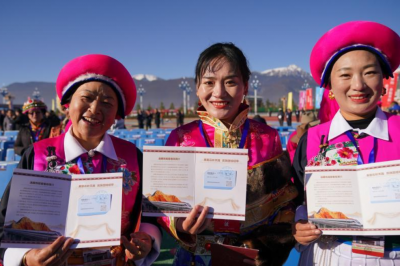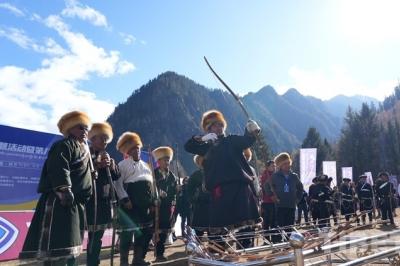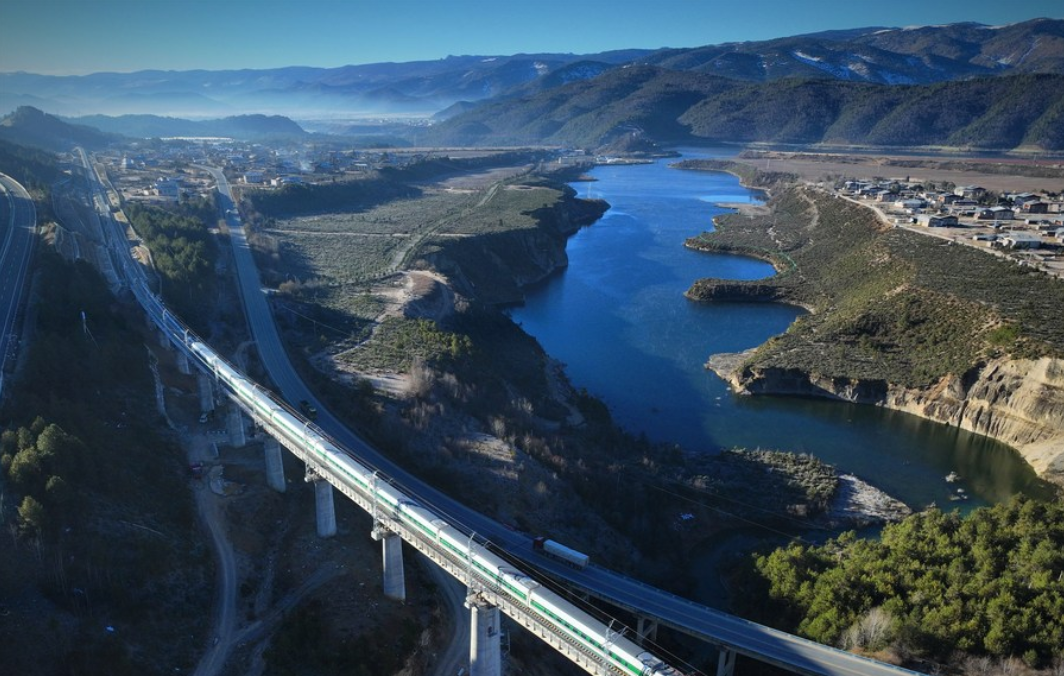| Jan. 12, 2017 -- Biologist Tu Yanli finds the sharp decline of fish in the Lhasa River, along which she lives, alarming.
She heads the plateau biology institute in the Tibetan Autonomous Region, and has led several research projects on the impact of non-native species in water and land in Tibet, mainly captive animals released for religious rituals.
"I have lived in Lhasa for 22 years. Back in the 1990s, there were no foreign fish in the rivers of Lhasa," she said. "But at least 10 types of non-native fish have been captured from the rivers in the past few years."
"Releasing captive animals is a benevolent act, but foreign species pose a great threat to the local ecosystem," she added.
Tu's research shows the lower reaches of Lhasa River have suffered great impact from invasive fish species.
"There are more mud fish and carp than ever in the Lhasa River. We also found bullfrogs in the Lalu wetland, which could threaten native frogs and other amphibians," she said.
Tu said urgency in the matter of bio-diversity compelled her to write a proposal, in her capacity as a political advisor, and push for government action.
As a member of the regional committee of the People's Political Consultative Conference, Tu makes suggestions to the government. If they carry enough weight they lead to government action.
Tu's proposal gained extra traction when it was voted one of the top ten proposals last year. A vice committee chairman was put in charge of coordinating solutions for top proposals, which included issues such as drinking water safety and development of universities in Tibet.
"Every year we select at least ten proposals, the most weighty ones, to address," said Padma Namgyel, vice chairman of the committee, during the ongoing annual conference of the committee, which opened last weekend and lasts until Jan. 14.
Tibet has about 500 political advisors, who made 489 proposals last year.
Namgyel said that nearly half of the proposals had been addressed and the rest were under consideration.
"A vice committee chairman stays on top of the proposals, calling meetings, overseeing progress and urging government bodies to follow up on the issues," Namgyel said.
Li Jiacheng, an employee of the Tibetan environment protection department, said Tu's meticulously written proposal had raised great attention.
He told Xinhua that the department would consider marking certain areas for freeing captive animals and prepare a handbook on such activities.
"The regional fishery department will probably provide native fry [young fish] for releasing," he said.
Last year, Tibet's political advisors made 41 environment-related proposals, about 9 percent of the total.
"Tibet's political advisors have clearly been more focused on environment issues than ever. I'm glad that their suggestions are making a difference," Namgyel said.
In another proposal, 16 advisors called for a complete ban on the use of coal in Tibet.
The regional reform and development commission promised to gradually phase out coal-fired boilers and ban the use of coal in new industrial projects. Namgyel said it was devising policies to subsidize the replacement of coal.
By: Xiang Bo
|
- Home
- News Tibet |Exclusive |China |World |Related News |Latest
- Documents White Papers |Others
- Photo Politics |Economy & Society |Culture & Religion |Human & Nature |Beautiful Tibet |Other Tibetan-Inhabited Area |Exchanges |Related
- Video News |Documentary |Micro-Video |Entertainment
- Art
- Tourism
- In Focus
- About Tibet






